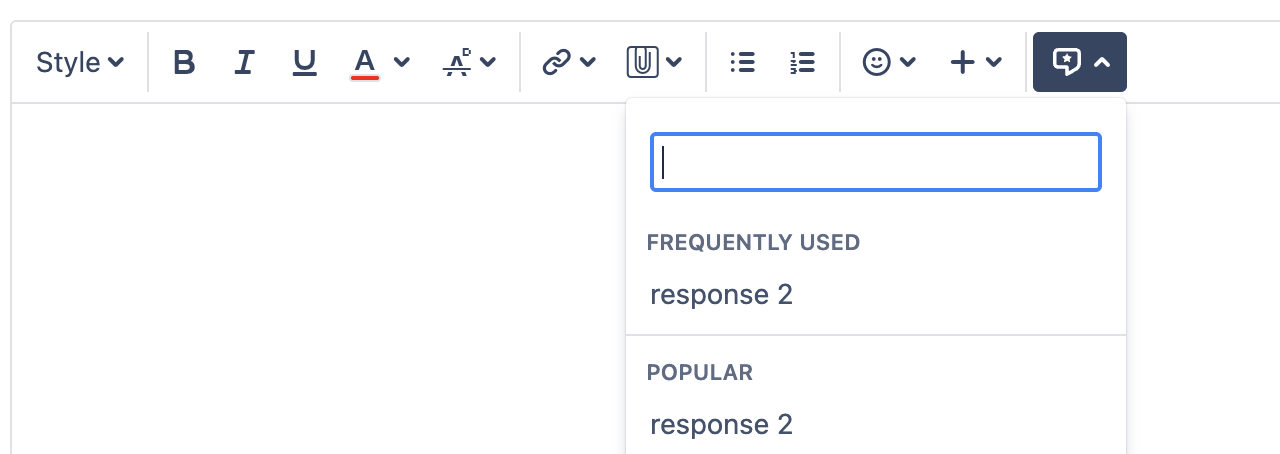Retrieve Canned responses in Jira Datacenter from database and REST API
Platform Notice: Data Center Only - This article only applies to Atlassian products on the Data Center platform.
Note that this KB was created for the Data Center version of the product. Data Center KBs for non-Data-Center-specific features may also work for Server versions of the product, however they have not been tested. Support for Server* products ended on February 15th 2024. If you are running a Server product, you can visit the Atlassian Server end of support announcement to review your migration options.
*Except Fisheye and Crucible
Summary
This article describes how to fetch canned responses in Jira DC using Database Query/Rest API.
We have a functionality in Jira Service Management to add canned responses. We can enable/disable this Jira Service Management with "Service Management Canned Responses Plugin".


Environment
4.12.0, 10.1.2
Solution
Using Database Query
One way to do this would be to run the following SQL query. It will give you all the canned responses.
Query |
|---|
|
Using REST API Call
Another way to retrieve the JSM canned responses, you can perform a GET request using the REST API at the below specified endpoint:
1<JIRA BASE URL>/rest/servicedesk/canned-responses/1/search/<PROJECT KEY HERE>The call above can be run with a curl or a tool like Postman, as detailed in the documentation - Rest API samples and usage guide. The expected output is a JSON file containing the canned responses, as an example:
1
2
3
4
5
6
7
8
9
10
11
12
13
14
15
16
17
18
19
20
21
22
23
24
25
26
27
28
29
30
31
32
33
{
"cannedResponses": [
{
"id": 1,
"title": "Hello Default",
"enabled": true,
"lastUpdatedDate": 1649708480588,
"lastUpdatedUser": "Admin",
"createdUser": "Admin",
"totalUsageCount": 0,
"content": {
"text": "Hello,\nThanks for contacting our awesome Support team!",
"html": "<p>Hello,<br/>\nThanks for contacting our awesome Support team!</p>",
"unresolvedVariables": []
}
},
{
"id": 2,
"title": "Have a nice day!",
"enabled": true,
"lastUpdatedDate": 1649708642292,
"lastUpdatedUser": "Admin",
"createdUser": "Admin",
"totalUsageCount": 0,
"content": {
"text": "Have an awesome day,\nSupport Agent | Awesome Support",
"html": "<p>Have an awesome day,<br/>\nSupport Agent | Awesome Support</p>",
"unresolvedVariables": []
}
}
],
"totalHits": 2
}Was this helpful?